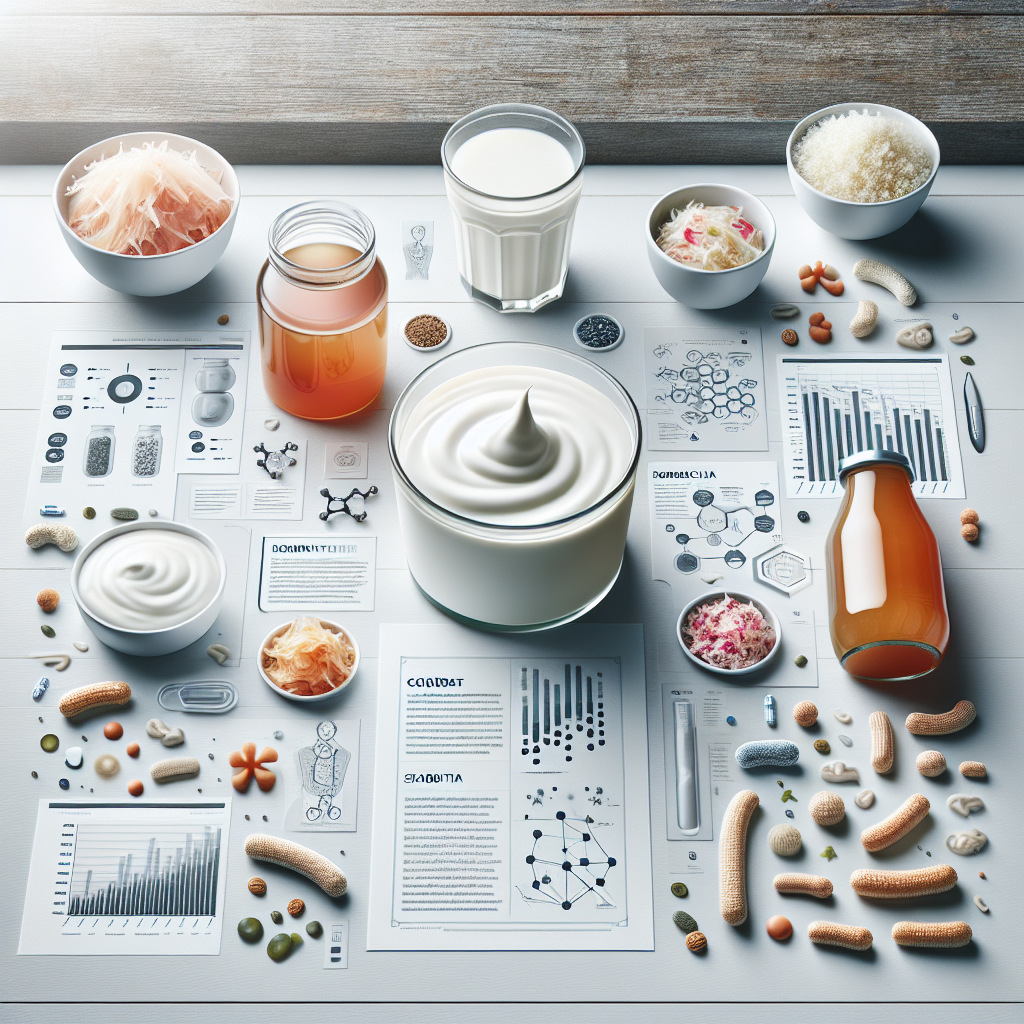### Exploring the Health Benefits of Probiotics: A Trending Topic in Nutrition Science
**Introduction**
New insights are constantly emerging in the world of nutrition science, with recent studies shining a spotlight on probiotics — live bacteria and yeasts that are beneficial for gut health. Thanks to such research, probiotics have become a popular topic both in scientific circles and among health-conscious consumers.
**What are Probiotics?**
Probiotics are often referred to as “good” or “friendly” bacteria because they help keep your gut healthy. They can be found naturally in your body, but they’re also present in some foods and supplements. These beneficial microorganisms aid in digestion, enhance nutrient absorption, and help maintain your body’s defense against infection.
**Health Benefits of Probiotics**
*Improved Gut Health*
Research shows that taking probiotics can promote a healthy balance of gut bacteria. This balance is critical because an imbalance can lead to weight gain, skin conditions, and various diseases.
*Reduced Severity of Allergies and Eczema*
Certain strains of probiotics have been observed to reduce the severity of allergies and eczema in some individuals. They can help regulate the immune response that leads to these conditions, reducing flare-ups and symptoms.
*Improved Mental Health Conditions*
A growing body of research has linked gut health to mood and mental health. Thus, it’s no surprise that probiotics can positively affect brain function and improve mental health conditions like depression, anxiety, and stress.
*Reduced Heart Disease Risk*
Probiotics can also boost heart health by lowering LDL (“bad”) cholesterol and blood pressure. Certain lactic acid-producing bacteria, when consumed, can break down bile in the gut, preventing it from being reabsorbed into the blood as cholesterol.
*Reduced Severity of Certain Infections and Viruses*
Some strains of probiotics can reduce the severity and duration of infectious diarrhea and viral infections like the common cold.
**Getting Probiotics from Foods**
While probiotic supplements are widely available, you can also get these healthy bacteria from certain foods. Yogurt, for instance, is one of the most familiar sources of probiotics. Other probiotic-rich foods include sauerkraut, kimchi, tempeh, and aged cheeses like Gouda and cheddar.
**Conclusion**
While many aspects of probiotics are still under scientific investigation, there’s no denying their potential in promoting overall health. They might seem like a new trend in health and wellness, but they have a long history in our food system. Including a variety of probiotic-rich foods in your daily diet could be a good step towards a healthier gut and overall well-being. As always, it’s crucial to consult with a healthcare provider before starting any new dietary regimen, especially for those with certain health conditions or who are pregnant.
**Disclaimer**
This article is for informational purposes only and should not replace professional medical advice. Always seek the advice of a qualified healthcare provider with any questions about your health.
**References**
– Harvard Health Publishing. “Health benefits of taking probiotics.” Harvard Health. [Link](https://www.health.harvard.edu/vitamins-and-supplements/health-benefits-of-taking-probiotics)
– National Institutes of Health. “Probiotics: What You Need To Know.” NCCIH. [Link](https://www.nccih.nih.gov/health/probiotics-what-you-need-to-know)
`End of Article`


